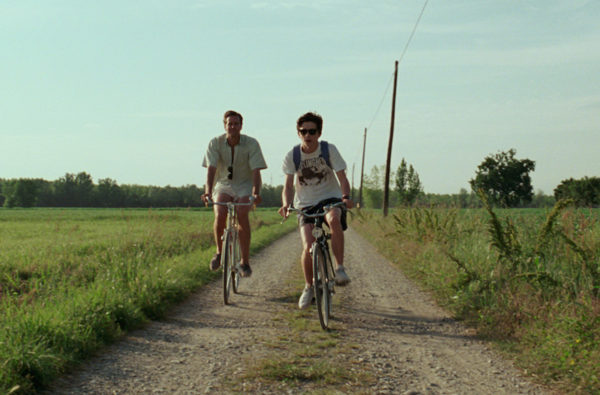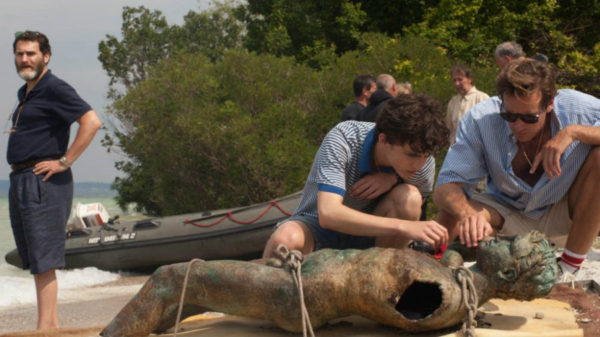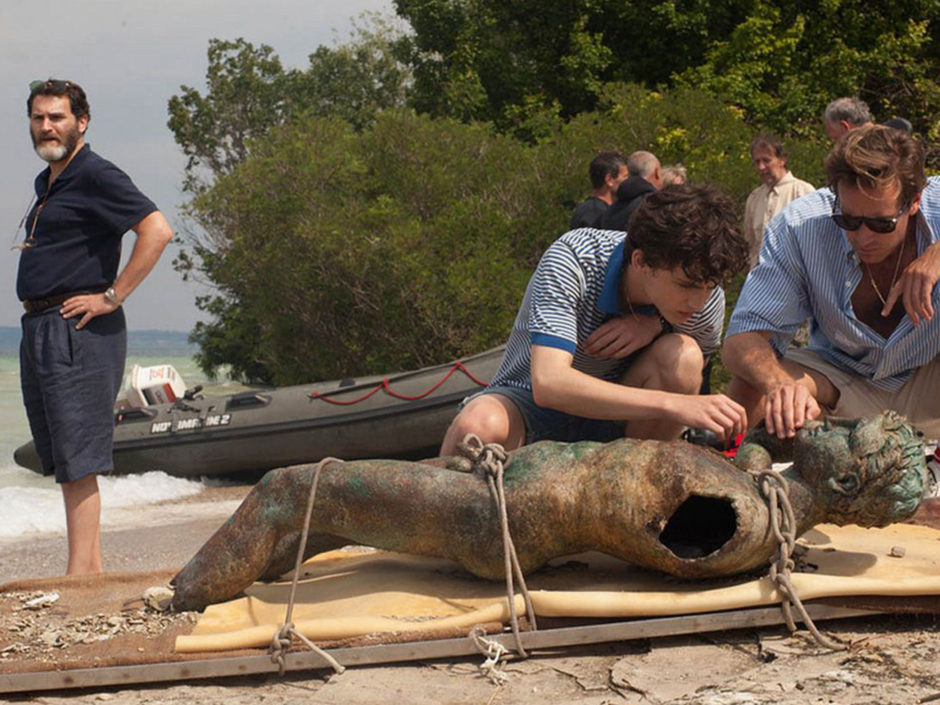Amid the sun-drenched sylvan splendor of a summer in northern Italy, two young men form a special bond. Their friendship unfolds in 1983 against the bucolic backdrop of a sunny garden, a Roman-style pool whose cool waters reflect the blissful rays of a southern European sun, an aquamarine sea and a starry sky. All this takes place in Luca Guadagnino’s richly sensuous film, Call Me By Your Name, based on Andre Aciman’s eponymous coming-of-age novel.

The protagonists are Elio Perlman (Timothee Chalamet), the 17-year-old son of an American archaeology professor (Michael Stuhlbarg), and Oliver (Armie Hammer), Perlman’s intern. Hammer, Chalamet and Stuhlbarg turn in wonderful performances that infuse the movie with magical qualities.
Oliver, a handsome, self-confident, take-charge kind of a guy, arrives at the Perlman’s rustic villa in an exhausted state and skips supper to catch up on his sleep. On the following morning, he joins Elio, Perlman and his wife (Amira Casar) for a relaxing al fresco breakfast. During the conversation, Elio raises the issue of his ethnicity, saying he’s Jewish, Italian and French. Oliver, who’s about seven years older than Elio, says he knows what it’s like to be “the odd Jew out” in a small New England town.
Oliver, nevertheless, is a social butterfly. He throws himself vigorously into a volleyball game, keeping one eye on the scantily-dressed ladies. He insinuates himself into a card game in a cafe frequented by older men. And in a thoroughly riveting exchange with Perlman, he discusses the Greek, Arabic and Latin origins of the word apricot.

Most of all, though, Oliver pays attention to Elio, a precocious and intelligent young man who dotes on classical music and plays the piano. The pair cycle into the nearest town, where they engage in a bit of banter. “Is there anything you don’t know?” Oliver asks half in jest. Elio, feeling somewhat vulnerable, admits he knows little or nothing about the “things that matter.” Oliver understands his allusion to sex, but draws away. “We can’t talk about those kinds of things,” he says cautiously.
Despite his reticence, Oliver can’t suppress his outward affection for Elio. “I like the way you say things,” he says. Elio, convinced he’s in the company of a kindred soul, shows him his favorite swimming hole. A little later, in a field, they kiss. It’s a harbinger of further physical contact between them. Elio, however, is not necessarily gay. He’s still dating Marzia (Esther Garrel), a local girl.

Call Me By Your Name is not only about sexual yearning and awakening. It’s also about identity. Unlike Elio, Oliver conspicuously wears a Star of David necklace. “My mother says we’re Jews of discretion,” Elio says by way of explaining why he keeps a low profile. Eventually, Elio dons a Star of David, but one can’t be certain of his true motives. Is he merely trying to impress Oliver? Or is he sincerely affirming his attachment to his religious background?
As time goes on, Elio’s sexual dalliance with Oliver intensifies. But when Oliver’s six week internship ends, he returns to the United States, leaving Elio distraught. In a scene of uncommon power and empathy, Perlman comments on their “beautiful friendship,” knowingly suggests it may have been more than platonic, and reveals something very personal about his own youth that strikes an immediate chord with his son.
Like their heart-felt conversation, this is a movie that releases passions, soothes the senses and glorifies the beauty of nature in all its forms and permutations.

